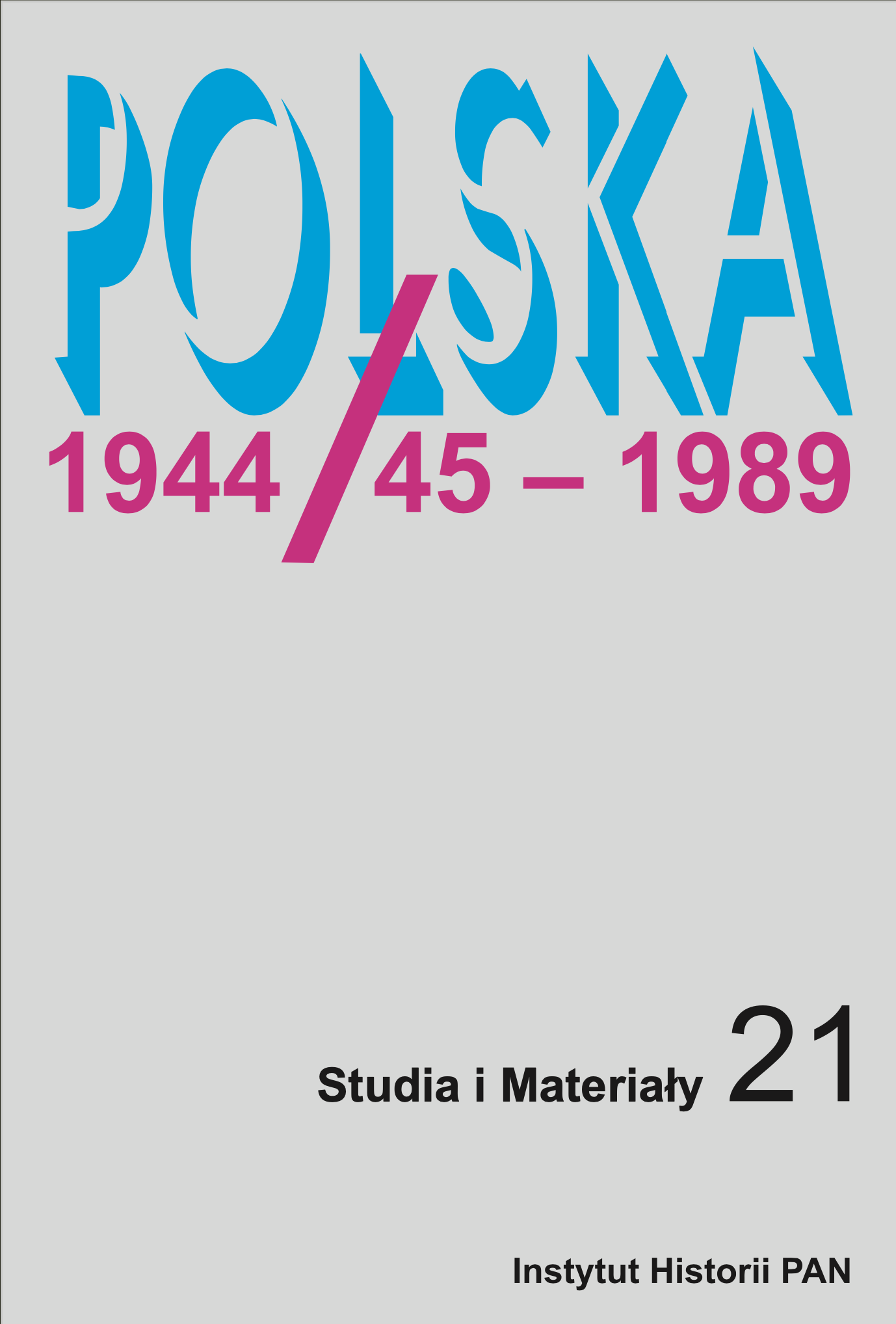Mniej znane epizody z życia Józefa Cyrankiewicza
Lesser Known Episodes from the Life of Józef Cyrankiewicz
Author(s): Robert SpałekSubject(s): Political history, Social history, WW II and following years (1940 - 1949)
Published by: Instytut Historii im. Tadeusza Manteuffla Polskiej Akademii Nauk
Keywords: Józef Cyrankiewicz; Witold Pilecki; Władysław Dering; Auschwitz; Polish Socialist Party; black legend; opportunism; heroism;
Summary/Abstract: The subject of analysis was the little-known episodes in Józef Cyrankiewicz’s biography, covering the period up to the 1950s, and concerning his stay in Auschwitz, his contacts with Witold Pilecki and Władysław Derigg, and his attitude to the political and ideological past of his socialist milieu. Cyrankiewicz’s post-war sense of security was built on the harm of others. He took on the role of a servile prime minister, headed five government cabinets (1947–1970), enjoyed the pleasures of life, and became one of the creators of the methodology of exercising repressive (periodically totalitar- ian) power in post-war Poland. Yet his earlier behaviour – in the author’s opinion – does not deserve “national excommunication”. Research indicates that young Cyrankiewicz took an active part in the conspiracy of the Polish Underground State and later in the conspiracy in Auschwitz against the Germans. Contrary to frequent accusations of our times, he did not actively contribute to the arrest and death sentence of Witold Pilecki. At the same time, in the second half of the 1940s, he did noth- ing to stand up for his earlier ideological party comrades from the Polish Socialist Party (PPS) and protect them from communist imprisonment. Had he done so, however, he would (in all probabil- ity) have been imprisoned himself; a stay in a German camp had broken Cyrankiewicz’s morale to such an extent that he never tried to behave in a risky manner again after his release. Notably, after 1945, this activist became a phenomenon in a world dominated by the primitive majority of com- munist activists. He began as a young, talented politician of the Second Republic (critical of it), to become, during the war and occupation, the regional co-founder of the political structures of the Polish Underground State and the hope of the independence socialists for the future. The hope – let us add – that was never fulfilled.
Journal: Polska 1944/45 - 1989
- Issue Year: 2023
- Issue No: 21
- Page Range: 121-147
- Page Count: 27
- Language: Polish

